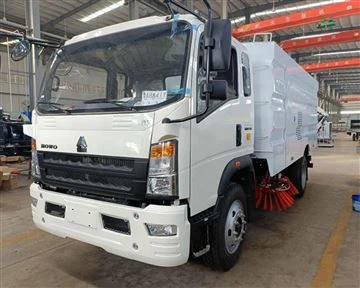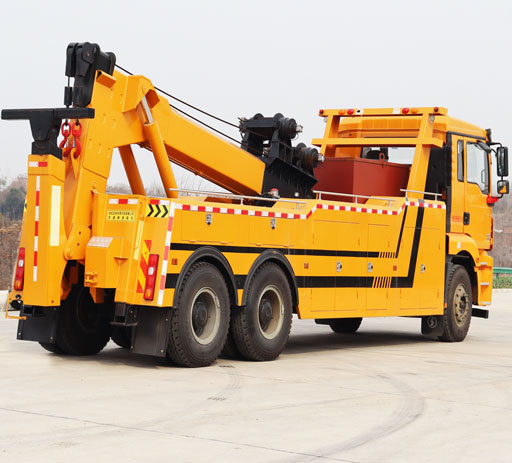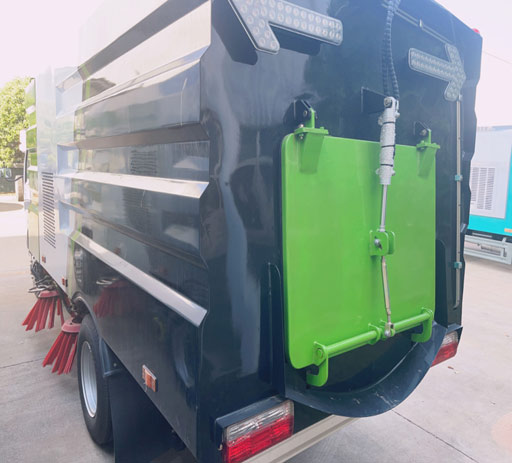Commercial Dumpster for Sale: Your Complete Guide to Making the Right Choice

Finding the right commercial dumpster for sale is essential for businesses, contractors, and event planners looking to manage waste efficiently. Whether you’re running a construction site, managing a restaurant, or organizing a community event, having the right dumpster can ensure cleanliness and compliance with local regulations. This article explores everything you need to know about commercial dumpsters, their types, costs, and how to choose the perfect one for your needs.
Understanding Commercial Dumpsters
Commercial dumpsters are large containers designed to hold waste generated by businesses. They come in various sizes and styles, tailored for different types of waste such as general refuse, construction debris, or recyclable materials. Their primary purpose is to facilitate easy waste disposal while ensuring safety and compliance with waste management regulations.
Benefits of Using a Commercial Dumpster
- Convenience: Having a dumpster on-site means waste can be disposed of immediately, reducing clutter.
- Cost-Effective: Renting or purchasing a dumpster can be cheaper than paying for multiple small waste pickups.
- Improved Safety: Keeping waste in a designated container reduces the risk of accidents and health hazards.
- Environmental Compliance: Proper disposal helps businesses adhere to local and federal regulations.
Types of Commercial Dumpsters
When looking for a commercial dumpster for sale, it is essential to understand the types available. These include:
Front-Load Dumpsters
Front-load dumpsters are typically used for restaurants and retail establishments. They have a loading mechanism at the front and are generally smaller, making them a great choice for businesses with limited space.
Roll-Off Dumpsters
Roll-off dumpsters are open containers that can be delivered and picked up as needed. They’re most commonly used for construction sites or large cleanouts due to their substantial capacity.
Drop Box Containers
These are similar to roll-off dumpsters but shorter. They work well for businesses needing a convenient way to dispose of heavy materials, such as concrete or metal shavings.
Choosing the Right Size Dumpster
Choosing the right size dumpster is crucial to ensure you have enough capacity without overspending. Here’s a handy guide to help you:
| Dumpster Size (Cubic Yards) | Typical Uses | Estimated Weight Capacity |
|---|---|---|
| 2 | Small restaurants, office buildings | Up to 2,000 lbs |
| 4 | Small businesses, retail | Up to 4,000 lbs |
| 10 | Home renovations, small construction | Up to 10,000 lbs |
| 20 | Medium-sized construction projects | Up to 20,000 lbs |
| 30 | Large construction projects | Up to 30,000 lbs |
| 40 | Major renovation or clean-out | Up to 40,000 lbs |
Cost Considerations for Commercial Dumpsters

The cost of a commercial dumpster for sale varies widely based on factors like size, type, and duration of rental. Here’s a breakdown of what to consider:
Factors Affecting Cost
- Size: Larger dumpsters cost more to rent or purchase.
- Type: Roll-off dumpsters typically cost more than front-load dumpsters.
- Rental Period: Longer rental periods will increase the overall cost.
- Location: Prices can differ by region or city.
- Waste Type: Some materials may incur additional disposal fees.
Average Cost Breakdown
| Dumpster Size (Cubic Yards) | Approximate Rental Cost (Monthly) |
|---|---|
| 2 | $100 – $300 |
| 4 | $200 – $400 |
| 10 | $300 – $600 |
| 20 | $500 – $1,000 |
| 30 | $700 – $1,200 |
| 40 | $900 – $1,500 |
Where to Buy or Rent Commercial Dumpsters
When searching for a commercial dumpster for sale, consider the following options:
Local Waste Management Companies
Most cities have waste management companies that offer purchase and rental options for commercial dumpsters. This can be an excellent way to get a dumpster shipped directly to your location.
Online Retailers and Marketplaces

Websites like Amazon and eBay can have listings for new and used dumpsters, allowing you to compare prices and conditions easily.
Construction Equipment Rental Companies
Some equipment rental companies also offer dumpsters for rent. This can be convenient if you already need to rent tools or machinery for your project.
Regulations and Compliance
Every business must comply with local and federal waste management regulations. Here are key points to consider:
Permits and Licenses
Before placing a dumpster on public property or in certain areas, check if you need a permit from your local government.
Prohibited Materials
- Hazardous waste (chemicals, paint, etc.)
- Electronics
- Medical waste

Familiarize yourself with what can and cannot be thrown in your dumpster to avoid fines.
Maintenance and Care for Your Commercial Dumpster
Taking care of your commercial dumpster is crucial for maintaining its condition and functionality. Here are some tips:
Regular Cleaning
Schedule regular cleanings to prevent unpleasant odors and pest infestations.
Inspect for Damage
Regularly check for dents, rust, or any other damage that could compromise the dumpster’s integrity.
Secure the Area
Consider using locking mechanisms if your dumpster is accessible to the public, deterring unauthorized use.
Practical Examples and Tips for Using a Commercial Dumpster
Understanding how to use a commercial dumpster effectively can save time and money. Here are some practical examples:
Construction Sites
On a construction site, it’s wise to place multiple dumpsters for different types of waste (general, recyclables, etc.). This practice streamlines disposal and helps with recycling efforts.
Restaurant Waste Management
A restaurant can schedule regular pickups and keep the dumpster covered to prevent pest problems. Ensure the loading procedure is easy for staff, making waste disposal seamless.
Community Events
For large events, consider renting several smaller dumpsters instead of a single large one. This can make it easier for attendees to dispose of waste properly.
Frequently Asked Questions (FAQ)
1. How much does a commercial dumpster cost to rent?
The rental cost can range from $100 to $1,500 per month, depending on the size and type of dumpster.
2. What size dumpster do I need for a small renovation?
A 10 or 20 cubic yard dumpster is typically adequate for small renovations, depending on the size of the project.
3. Can I put hazardous materials in my commercial dumpster?
No, hazardous materials must be disposed of following specific regulations and cannot go in a standard dumpster.
4. How often should I have my dumpster emptied?
The frequency of pickups depends on the amount of waste you generate, but businesses usually schedule pickups weekly or bi-weekly.
5. Are dumpsters available for purchase or only rental?
Dumpsters are available for both purchase and rental depending on your needs and budget.
6. What happens if I overfill my dumpster?
Overfilling a dumpster can result in additional fees, and the waste management service may refuse to haul it away until it’s compliant with safety regulations.
